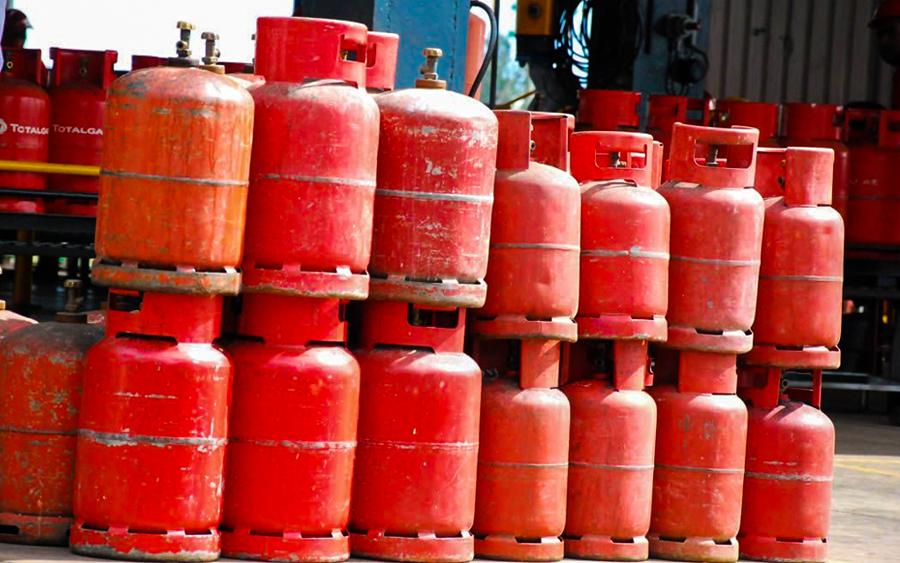
Marketers of Liquefied Petroleum Gas, well known as cooking gas, on Saturday, expressed worry over the supply shortage leading to persistent increase in the price of the commodity.
They warned that 12.5kg of cooking gas currently selling between N7,500 and N8,000 could rise to N10,000 before December if nothing was done to address the crisis.
The marketers lamented that more Nigerians had resorted to using firewood, charcoal, sawdust, among other unrefined energy sources whose prices have also begun to rise.
The Executive Secretary of the National Association of LPG Marketers, Mr Bassey Essien, disclosed this during the weekly e-discourse organised by a leading Pan-African forum, Platforms Africa, a statement on Saturday by the organisation’s Team Lead, Adeola Yusuf, said.
Platforms Africa is the e-community of intellectuals, policy moulders and opinion leaders on the continent.
Essien maintained that government needed to review the recently introduced import charges and Value Added Tax, else “the price of cooking gas may as well reach N10,000 for a 12.5kg cylinder.”
He said, “Today (Saturday), the price has risen to N7,500 and N8,000. The skyrocketing price of gas is our fear and what we are trying to avoid. Early in the year a 20-metric ton of gas was selling for below N5m but today, the same tonnage sells for N10.2m. As long as there is that supply shortage, the available quantity and the dynamics of supply-demand will keep pushing the price higher.”
Lamenting poor patronage of NALPGAM by customers due to the high price, Essien said the association was concerned that more Nigerians were being forced to return to coal, sawdust, kerosene, and other dirty fuel as “the price of the cooking gas has suddenly gone up.”
He, however, said the association was interfacing with the government, stakeholders, producers and importers to see how the situation could be addressed.
Essien added, “We are also meeting with the marketers vide moral suasion not to capitalise on the situation to inflict more pains on citizens by increasing the cost of gas in their locations though they are equally expending huge cost to have cooking gas at their locations.”
NALPGAM secretary also decried the gradual rise in the cost of cylinders over the years, maintaining that all the raw materials used by the two cylinder manufacturing plants in the country were imported.
He said despite Nigeria’s over 180 million population, the country barely had up to 10 million cylinders in circulation amid substandard cylinders in circulation.
He said, “The cylinder ownership structure in the country ensures that owners are in charge of their cylinders. Cylinders expire on the 15th year of usage from the manufacturing date. Because of the high replacement cost, consumers buy what they can afford. This has equally encouraged the proliferation of substandard cylinders in circulation. The regulators are working hard to monitor the standard of cylinders coming into the country.
“The progress in cylinder acquisition still needs government input to ensure that the cost of materials for cylinder production get the necessary exemption from duties but however the state of our local currency still remains a major problem.”
The PUNCH
